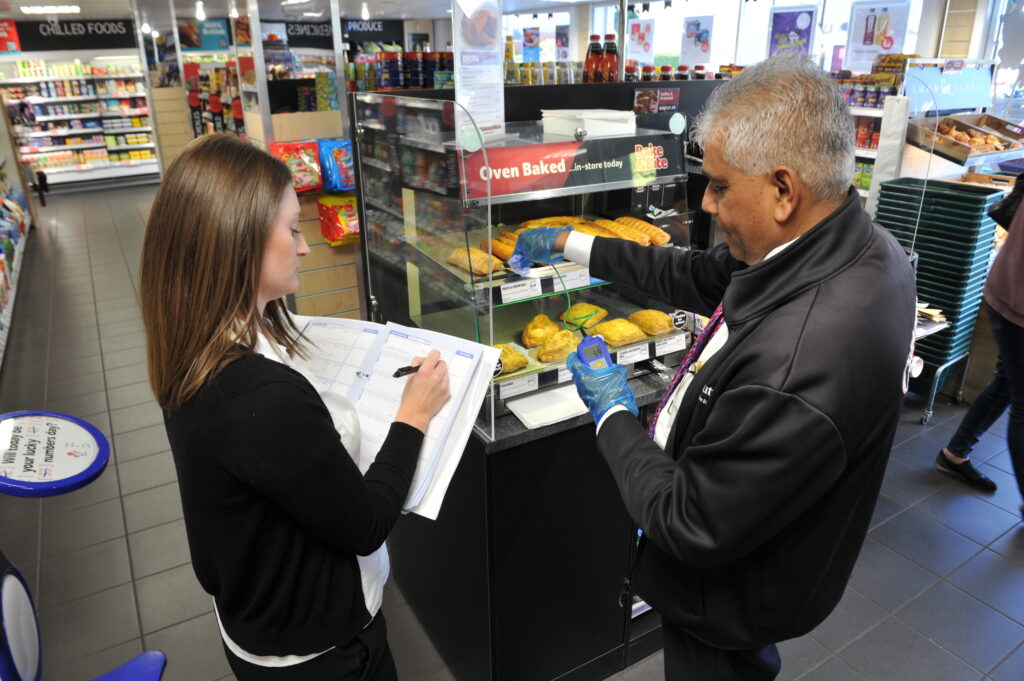Even without travel restrictions imposed by Covid-19, the likelihood of retailers disappearing off for an extended holiday had never been that large. Whether it’s overseeing the day-today running of the store or being its daily face in the community, it can feel like your every waking hour is spent behind the till or in the back office. But it is important to be able to step away, take time for yourself and recharge your batteries. And in the aftermath of several lockdowns and the increased pressure that has been enforced on the convenience sector, having the opportunity to restore your sense of self has perhaps never been more important.
Perhaps the biggest barrier for retailers taking holidays is the concern about leaving the running of the business in the hands of someone else. Handing over control of the ship requires absolute trust in the abilities of your second-in-command, and without that it can be a scary thing to leave things out of your control. This has been particularly apparent over the past year, with so many more people visiting convenience stores and plenty of coronavirus rules to uphold in store. “I doubt we’ll go away this year because we don’t feel it’s fair to leave the staff to implement the rules about mask-wearing and only allowing two people in our store at one time,” says Jenny Owen, from Trunch Corner Stores in North Walsham, Norfolk.
Taking time away from the store is good for retailers’ mental health, giving them time to restore themselves, but also gives the chance to take a step back and look at the bigger picture of the business. Giving staff responsibilities can improve their sense of worth and their overall performance, as well as showing
clear career progression. “Train them and pay them extra,” says Sathiyarag Thiyagrajah, from Gilmerton Grocers in Edinburgh. “It will take your stress away and give you time with your family and gives them the chance to step up.”
Have a schedule
Jenny Owen, from Trunch Corner Stores in North Walsham, Norfolk, tends to take halfdays so that staff don’t have to shoulder the responsibility of closing the shop alone at night.
“They’d do it, but we don’t feel comfortable because of the exhaustion levels,” she says. “We live on the premises and we’re not away for the full 24 hours.” Owen tends to take Wednesdays off, because the post office is shut, while her husband takes time off on Thursdays.
They then alternate time off on Saturdays as well when it’s not busy. “I think a schedule is better because if you want to plan anything – even a dentist’s appointment – I know I’m not interrupting a routine,” she says. “If you can keep to something, then you can make arrangements. You can do things that you enjoy – bake a cake, watch a movie, a bit of sewing. If you can do something once every day that you enjoy, that helps.”
Training and trusting staff
In order to step away from the store, you need trusted and trained staff to hold the fort. During the pandemic, Sathiyarag Thiyagrajah, from Gilmerton Grocers in Edinburgh, made his part-time staff full-time and hired two more part-time staff. This was funded by increased revenue and means that his team is
increasing their skillsets.
It also means he can concentrate on improving the business, leaving the day-today in other people’s hands while he looks to improve the offer still further.
“I’m more confident that I can go on holiday right now. We have more staff, so I’m doing less work. I’m concentrating more on spending time online to find new trends, searching the computer for new things. I can see on my phone what’s happening in the store anyway. All these things add up and make it easier to run a business.”
Take the opportunity if it arises
Ushma Amin, from Londis North Cheam, Surrey, and her husband used to work seven days a week through the pandemic, but they have now recruited staff who open up the store on Sunday to give them the day off. “I don’t know how long it’s going to last, but at the moment it’s going ok,” she says. Other part-time staff members help out on weekends, Mondays and Tuesdays.
Amin only lives a short distance away so is on hand should any emergencies happen, and with new technology and camera systems allowing her to see what’s happening in the store from anywhere in the world, she never feels like the store is completely out of her hands.
“You don’t ever entirely step away,” she admits. “You’re always thinking about it. But if you get the opportunity, make the most of it. Even if you have half a day, take that time off and spend it with your family doing what you enjoy.”
Team up with other retailers
The cost of bringing in a manager to run your business while you’re away could be prohibitively expensive, but Mike Nicholls, from Costcutter Dringhouses in York, has been speaking with other retailers about a more cost-effective solution.
“If retailers could help other retailers and add a small fee that could work,” he says. “There are no overheads for other retailers and they could pay the money almost on a rate to what they do with staff, and it’s that trust. It might be ex-retailers who want work. It’s difficult though, because a lot of retailers just daren’t let go.”
He hopes that retailers could perhaps come together and form a company with assistance and grants from the government. “It’s getting publicity out there to know that a group of retailers are willing to do that. I have done it for a couple of stores, and they’ve come back and said it was like they had never left.”
This piece appeared in the 2 April 2021 issue of Retail News. To get the latest issue, subscribe here







Comments
This article doesn't have any comments yet, be the first!